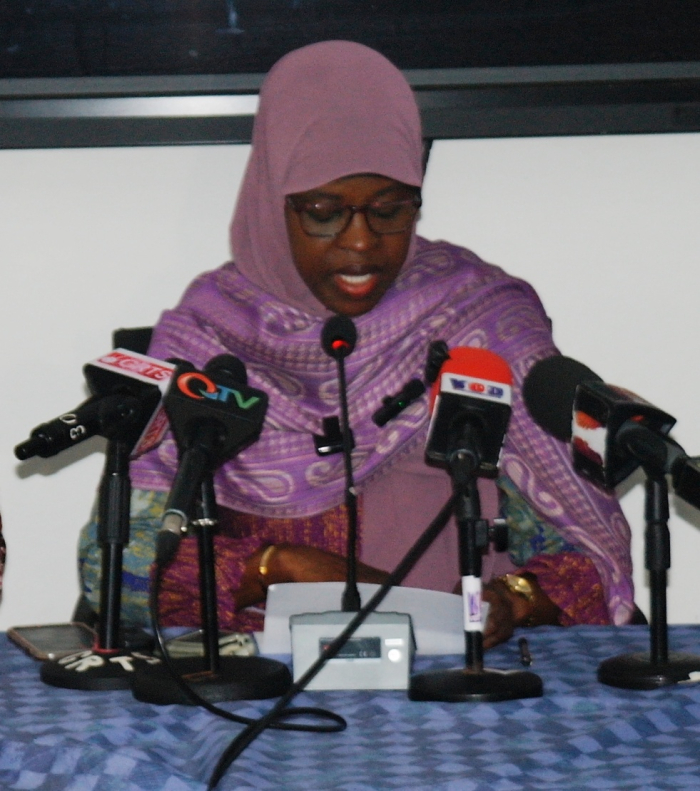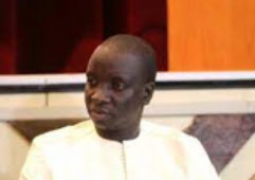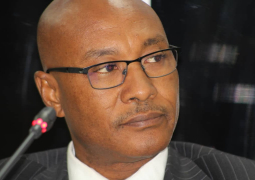
The presentation ceremony, held at the Lottery Centennial Science and Laboratory Centre in Kanifing, marked the single largest distribution of advanced science and technical equipment to Gambian schools in recent years. The beneficiary institutions include 26 senior secondary and 3 upper basic schools, while large numbers of school principals and officials of MOBSE witnessed the event.
Speaking at the event, Minister Habibatou Drammeh described the day as a “milestone in the history of the education sector,” adding, “I am profoundly gratified to witness what we’ve achieved together in advancing the teaching and learning of science and technical subjects in our schools.”
She attributed the success to strong bilateral collaboration, saying, “First and foremost, I thank the government of The Gambia under the leadership of His Excellency President Adama Barrow for fostering a fruitful partnership with the government of Kuwait, which led to this remarkable development.”
The distributed equipment includes tools and materials for physics, chemistry, biology, home science, woodwork, metalwork, and technical drawing.
According to the minister, these resources will significantly improve practical, hands-on learning experiences in schools and help bridge the gap between theoretical learning and technical application.
“These materials are critical as we prepare our students to thrive in a competitive, technology-driven world. They will support our ongoing efforts to advance STEM education nationwide,” she noted.
Highlighting MoBSE’s broader efforts, Dr. Drammeh mentioned the establishment of regional laboratories in Kaur and at The Gambia College, which are open to surrounding schools. She also announced upcoming plans for another regional lab in Mansakonko (LRR), along with the construction of hostels to accommodate students who may travel to use the facilities.
“These are concrete steps we are taking to ensure science education is accessible across regions,” she said, while expressing gratitude to MRC Holland Foundation for its continued support.
The Minister stressed that the sustainability and proper use of the equipment would determine its long-term impact: “We urge recipient schools and communities to take full ownership of these valuable resources. Handle them with care, protect them from theft or damage, and use them effectively for their intended purpose.”
She also called on the Directorate of Science and Technology and the In-Service Training Directorate to intensify capacity-building programs for teachers, ensuring they are adequately trained to use the equipment.
“Quality education hinges on quality instruction. With the right training, our teachers can maximize student outcomes and unlock the full potential of this investment,” she said.
According to Dr. Drammeh, MoBSE remains committed to infrastructure and academic development across the country. “Since January, the sector has been erecting 15 classrooms daily across the country. These advancements speak volumes about our strategic focus and dedication.”
In his remarks, Mr. Louis Moses Mendy, permanent secretary at MoBSE, described the event as “an important moment,” linking the initiative to national development goals.
“When society needs transformation, the school is the first point of contact,” he said. “That’s why we reviewed our curriculum to create different science pathways for students to explore their potential, whether in pure sciences, applied sciences, or combinations with arts and commerce.”
He emphasised the need to prepare students for the University of Applied Science and Technology (USET), formerly GTTI, and reduce reliance on foreign skilled labor. “We cannot continue importing labor. We must train our own engineers, doctors, and scientists,” Mendy stated.
Welcoming the guests, Mrs. Fatou Bittaye-Cham, director of Science and Technology at MoBSE, stressed the central role of laboratories in modern education.
“Science labs are no longer optional. They enable hands-on exploration and cultivate the next generation of innovators and critical thinkers,” she said.
“These labs transform abstract scientific concepts into tangible learning experiences. They also foster collaboration, preparing students for the demands of the global scientific community,” she concluded.
Therefore, she appealed to school heads and students to make effective use of the resources



